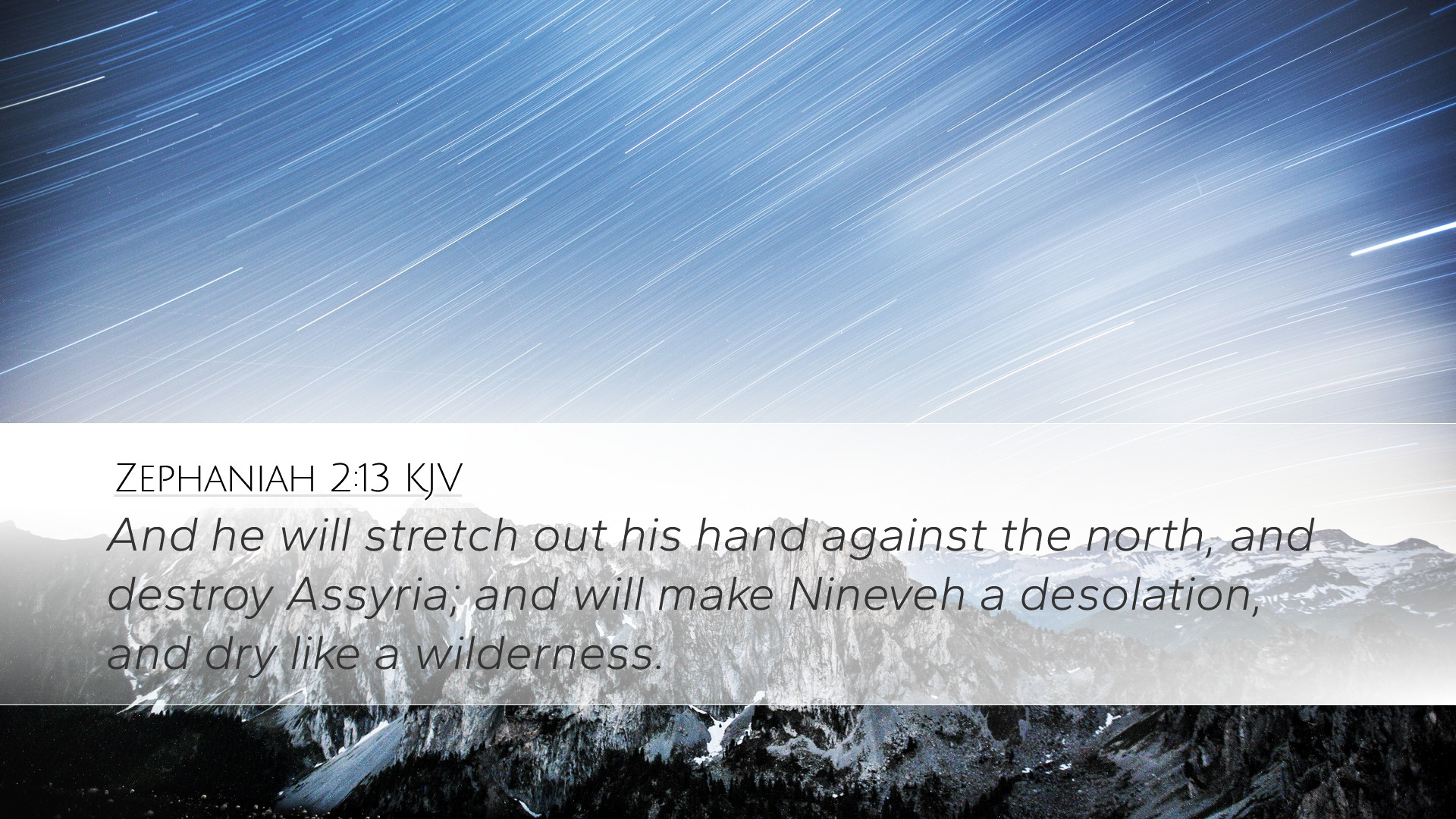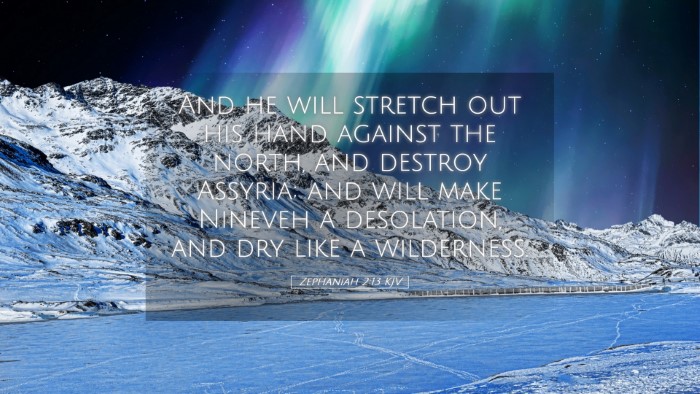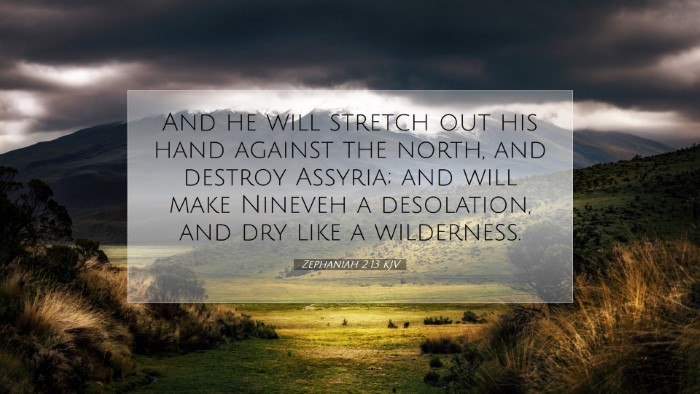Old Testament
Genesis Exodus Leviticus Numbers Deuteronomy Joshua Judges Ruth 1 Samuel 2 Samuel 1 Kings 2 Kings 1 Chronicles 2 Chronicles Ezra Nehemiah Esther Job Psalms Proverbs Ecclesiastes Song of Solomon Isaiah Jeremiah Lamentations Ezekiel Daniel Hosea Joel Amos Obadiah Jonah Micah Nahum Habakkuk Zephaniah Haggai Zechariah MalachiZephaniah 2:13
Zephaniah 2:13 KJV
And he will stretch out his hand against the north, and destroy Assyria; and will make Nineveh a desolation, and dry like a wilderness.
Zephaniah 2:13 Bible Commentary
Commentary on Zephaniah 2:13
Zephaniah 2:13 states: "And he will stretch out his hand against the north, and destroy Assyria; and will make Nineveh a desolation, and dry like a wilderness." This verse holds significant theological and historical implications, as it deals with God's judgment against nations and His sovereignty over the affairs of men.
Historical Context
Matthew Henry provides a foundational understanding of the historical backdrop against which Zephaniah prophesied. In the late seventh century BC, Assyria was in decline, having previously been the dominant power in the region. Nineveh, its capital, became a symbol of arrogance and oppression against Israel and Judah.
Albert Barnes underscores the importance of recognizing Nineveh's previous grandeur and its eventual downfall as a reminder of God's power. At the time of Zephaniah's prophecy, Assyria was not merely a political entity; it represented the enemies of God's people, making its judgment a source of hope for the Israelites who suffered under Assyrian oppression.
Theological Significance
This verse emphasizes God's absolute sovereignty over nations. Adam Clarke highlights that the prophetic declaration against Assyria serves as evidence of both God's foreknowledge and His control over historical events. The destruction of Assyria illustrates that no power on earth is beyond God's reach and judgment.
- God's Sovereignty: The proclamation against Assyria shows that God can bring down the mighty. Clarke notes that God's judgments are consistent with His holiness and justice.
- Judgment and Mercy: While this judgment appears severe, Henry reminds us that it ultimately reveals God's mercy towards his covenant people, emphasizing that divine retribution against enemies guarantees their deliverance.
- The Assurance of Prophecy: The certainty of this judgment provides believers with confidence in God's word. Barnes emphasizes that fulfilled prophecy strengthens faith and assurance in God's promises.
Literary Devices
Zephaniah uses stark imagery to convey the severity of God's judgment. Matthew Henry points out that the description of Nineveh becoming a “desolation” and “dry like a wilderness” evokes a powerful visual representation of destruction that would be both memorable and weighty for its original audience.
Applications for Today
- Understanding Justice: Believers today can learn about God's justice and righteousness through this passage. It is a reminder that God is actively involved in human history and will enact justice against nations and individuals that defy His laws.
- Hope for the Oppressed: The message offers hope for those who face oppression. Just as God intervened for His people during Zephaniah's time, He remains a deliverer for the marginalized and victimized today.
- Call to Repentance: The ultimate purpose of declaring judgment is often to lead to repentance. Modern readers are called to reflect on whether they draw nearer to God or stray into the paths of injustice and unfaithfulness.
Conclusion
In conclusion, Zephaniah 2:13 stands as a critical verse for understanding God's character and His sovereign rule over nations. Through the lenses of Matthew Henry, Albert Barnes, and Adam Clarke, readers discover profound insights into the nature of God’s judgment and mercy. This prophetic message has lasting implications for the contemporary Church and individual believers, calling for justice, hope, and a deeper relationship with the divine.


